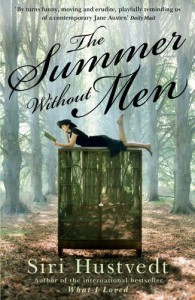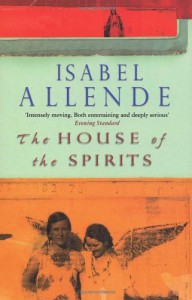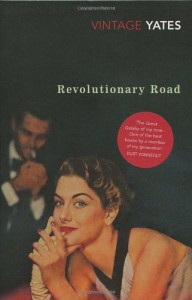Theculturecafe
A compelling book

I bought this book after finishing Istanbul Memories of a City as I wanted to continue to stay in Istanbul and learn more about the city. I had just visited Istanbul in February this year and was so mesmerized by it that I wanted to learn more, continue to dig my mind into it. While Istanbul Memories of a City reads more like a biography the museum of innocence is a fiction narrated by Kemal, over a 30 years life span. This book had me hooked in a strange way, I wanted to give up on reading it, as I had the feeling that nothing was happening, page after page it sounded too predictable and it kind of drove me insane that nothing ever happened between the two protagonists, Kemal and Füsün for so long, in a way I found Kemal's obsession with Füsün similar to the one of the Princesse de Clèves by Madame de Lafayette that I had to study in French literature. Somehow each time I told myself I can't take this any more, how can Kemal be so passive, accept to give up on his free will, become so dominated but is he really? Orhan Pamuk manages to intrigue the reader and creates a kind of similar obsession that Kemal is experiencing, somehow it is fantastic writing, it is a courting that goes on for years, in a society where everything goes really fast, Ohran Pamuk slowed everything down, pacing the story to the rhythmic beat of a heart, creating expectations and slugging the whole story down again and again. I still can't say if I loved or hated this book, it will not leave you blasé, it will unsettle you, create discomfort and will remain as a very strong memory, something which rarely happens with a book.
Alone in Berlin

How to be a woman

Caitlin Moran’s book How to be a Woman had me bursting with laughter, I haven’t read such a funny book for ages, it’s the perfect summer read. Lying on a beach you will finish it in no time (however I can’t guarantee that, with kids to look after). I managed not to respond to the buzz made around this book at first, as I hardly knew who Caitlin was. The cover had me intrigued for 2 minutes, on my Amazon recommended reading list. When reading the back cover in Waterstones', I succumbed and felt compelled to buy it. I did not really know what to expect, this book is a mix of fiction and biography and starts when Caitlin enters puberty without a great deal knowing about it. It doesn’t take long for the hormones rush to take over and transform her into a lusty teenager. She throttle through, managing to get a job in a publication, I never heard of before, is convinced to have landed the perfect boyfriends, fell deeply in love, with complete smug, the easy trap teenage girls (and bigger ones) fall into. She speaks openly about her drugs consumption, grew up in family so poor she had to wear her mum’s knickers, “It’s one of the many reasons why being very very poor sucks, you have to live in pants that give you nightmares”. She ends up being a very successful woman and describes the process of how to be a woman and a feminist. I get her point and often agree with her, I would not recommend the drug abuse as a mean to find your way to become a women though. Basically, she is saying that no one should dictate us how to dress, wax etc... We’d better run away from the plastic surgeon, as it makes women “look like Astronauts experiencing g-force in a wind tunnel”, the type of sentence that made me laugh throughout the book. I find her brave enough, to tell us to stop being afraid of getting old, as it “makes us looking like losers. It makes us look like cowards”. I am not sure everyone confronted to ageism in the work place, will be brave enough to pass the surgeon, anyway she’s got a strong point there. It took thousands of year to get through emancipation, it is about time that we make the most of it. This doesn’t mean against men, but working with them towards equality.
Survival through repression

Purge is by no mean Sofie's Oksanen first book, with 2 previous books that became literary successes like :Baby Jane and Stalin's cows.
She has developed a unique and gripping writing style. The drama in her stories is about women struggling and surviving under repression. Before being a writer she was a dramaturgy student at Helsinki Theatre Academy, her first novel Stalin's cow has put her name at the edge of the literary scene.Born half Estonian, half Finnish she is familiar to the predicament of the Finnish neighours', under Communism ruling in the Eastern block, living with the hope of regaining freedom.Purge was awarded the European Book Prize 2010. The story moves forward through flash backs between the past and present when Zara find refuge at Aliide's house escaping her pimp. A family secret unfolding with dramatic revelations links them together. The story is a real page turner and an eye opener about the Russian occupation in Estonia and its downfall
Chick Lit for grown ups

Don't be deterred by the title, this is chick lit for grown ups, it is about modern passion backed against the harsh reality of day to day life. Have you ever imagined a passion developing between a farmer, bound to his farm by his 24 cows and a librarian? This is miles away from the Hollywood chick lit treatment where the heroines always has the most glamorous job in the world not this time, Desiree and Benny couldn't be more down to earth than that. How do they meet? In a cemetery, Benny is mourning his parents and Desiree her husband. I have to admit it doesn't seem so romantic for a start, anyway it sounds a great idea to make two people with a world apart being able to meet and start an unconventional story.
Escape to the West

Loved this story which relates the story of Mona a teenager in Ceacescu's Romania, falling in love and escaping to the West, rebuilind a new life in the US. The story is full of twists and turns as we follow Mona moving to her new life in the West. Even though she quickly integrates herself into the American way of life, she remains true to herself and cant forget her native country. I love Dominic Radulescu writing, the way she narrates Mona's story is light,colourful and picturesque. Your heart is bouncing reading through the pages, as you follow Mona's tale, I could hardly let got of it.
A refreshing summer read

For me it was not a summer without men but rather with men only, 4 males under the same roof. Reading books was my way to escape a climate too heavily loaded with testosterone. This was my first read by Siri Hustvedt and I quite enjoyed it, it was light and I could easily warm up to Mia the main character. A women in her 50s going away for the summer after a psychotic episode of delirium, having to go through the abandonned middle age, wife syndrome and her husband Boris falling for a younger model. Mia a literature teacher is not falling for the victim attitude, she chooses to escape from Boris and the pause ( how she calls the other woman), near a place close to her mother's retirement home where she meets some lovely very old ladies. She organises a poetry workshop for seven young ladies at the other end of the spectrum of life just entering their adolescence and not devoid of cruelty, begins a friendship with Lola her neighbour who spends her time between two young kids, a husband on the run and her jewellery designs. Mia nagivates between all the protagonists, exclusively female, the men are not absent from the story but we rarely hear them speak and they do not take centre stage. The story is all about women at a different stage of their life, Mia gets close to Lola, Abigail and Alice she plays a catharsis for all three of them, helps them unfold some deep rooted issues, and move towards the next step in their life, this indeed helps her as well through the next stage. Siri's wording and style is ciseled and refined, with good rythm. The alternation between the 3 stories with Mia as centerfold keeps the reader's attention abreast. Mia is quite an attaching character with her own issues but during that summer time she devotes her time to others, her generosity is a way to help her going through her hardship withouht falling pray to desperation and raising as a stronger character in the process.
100 years of Chile through the eyes of Eduardo Truebas

I was weary at first when I took the book displayed with the front cover on a shelve in a travel bookshop.I had try to read some later work by Isabel Allende but could delve into it, so I chose this one with no great expectations. The main character Eduardo Truebas is a diehard, as ruthless as the land he owns, with not much sympathy for the tenants who work on his land. He does not show much compassion for his ill mother and the sister who looks after her, which makes you wonder if the man has got a heart, until he falls head over heals for Rosa who's premature death has him asking her sister Clara's hand. Clara is the complete opposite of Eduardo, she has psychic and medium powers which creates a lot of fantasy in the home she sets up with Eduardo. A bit too much fantasy and flowery wording to my taste but this all part of the story as it seems that the story takes places in a very far remote time with no indication of period except for the mention of the second world war and the revolution. As the family of Eduardo expands with the arrival of the children Blanca, Jaime and Nicholas, the story develops over another 20 years following Clara and Eduardo sharing their time between a huge mansion in the city and the Domaine of Tres Maria in the country. Nothing falls to plan according to Eduardo who became a politician and a well respected figure in the country, all his children end up as a disillusion although he never gives up on them, even when his daughter Blanca gets pregnant out of wedlock. His granddaughter Alba is the one that will mellow him and the difficult times she went through during Pinochet's dictatorship made Eduardo realises he was all wrong about encouraging a coup d'Etat and not supporting a fairer share for the poorer populations.
Isabel Allende gives a very good insight of the history of Chile, the build up towards a revolution in a country where rich land owners still considered peasants and indians as an under class, the sabotage that took place to make Allende's government fail. Is the fact that she never mentions any official names in the story a way to push the reader to do more research about this time period or because she wants to keep the story as a pure work of fiction, anyhow the period of the revolution and the dictatorship is the one that we can refer to as closest to our memory and the most dramactic period in the country's history. The style of writing, giving the reader clues about how the story will unfold can be an annoyance, although it doesnt squander the work of a great story teller.
Italy in the war time

I love a good story, it was even better when reading it lying on the beach and enjoying the sunshine over my back. I bought the "Last Train from Liguria" because I liked the title, the cover and the abstract at the back. It took me while to get used to Christine's style and really get into the story, as it develops rather slowly. It gave me the feeling that nothing happened through entire chapters, in a sense it gives the reader some space and time to get attached to the characters. Once you are locked into the story, you just want to flicker through the pages to discover what would happen next and keep going. I hardly wanted to put this book down as I got really attached to its characters.The story takes place in 1939 and focuses on Bella who moves to Italy to tutor the only child of an aristocratic Italian family living in Sicily. As soon as she arrives, she is asked to travel back to Bodigherra on the ligurian Riviera where she can finally meet with Alessandro the boy she is supposed to look after. As the mother of the child is getting less and less involved with her child and his father dies, Bella and Edward the piano teacher take centre stage in Alec's live. The domestics and his tutor develop a close knit family for Alessandro's until his mother remarries and decides to send him back to school. Bella and Edward ask themselves what will happen of them once Alec is back at school but continue to live at the villa Lami. As fascism takes power over Italy Edward and Bella are asked to take Alec back with them to England.

I had never heard of Richard Yates, before picking one of his books at the airport, en route to Basle. I see some similarities between Yates' life and Frank Wheeler, one of the main protagonists, in Revolutionary Road. Yates, like Frank moved home on a regular basis during his childhood, he served in France during the Second World War, where we see Frank planning a new life with his family to escape the daily grin of suburbia. It took me sometime to get into the story and read through the bliss of domestic life that April is pretending to live, at some point Yates describes her, on a mission to scrub the house free, from every piece of dirt and dust, the typical job of a stepford wife. Once I read through their ordinary life and moved along the pages, where tension starts to build up and old wounds crack open, I became completly hooked on the book and find it hard to put down. If April is a devoted wife, we can see the premices of an independent woman but she rapidly resigns herself to her fate. Frank is trying to pretend to be the hero April would like him to be and therefore gives her false hopes while he ends up being a coward. I really enjoy reading about April and Frank, even if I feel really sorry for them, even more so for April.




